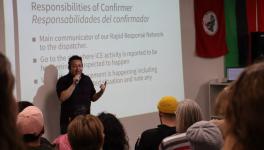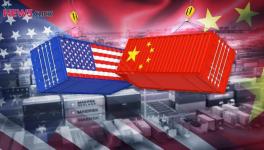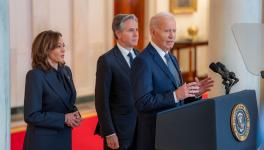A Turkish-Russian Entente Cordiale in the Making
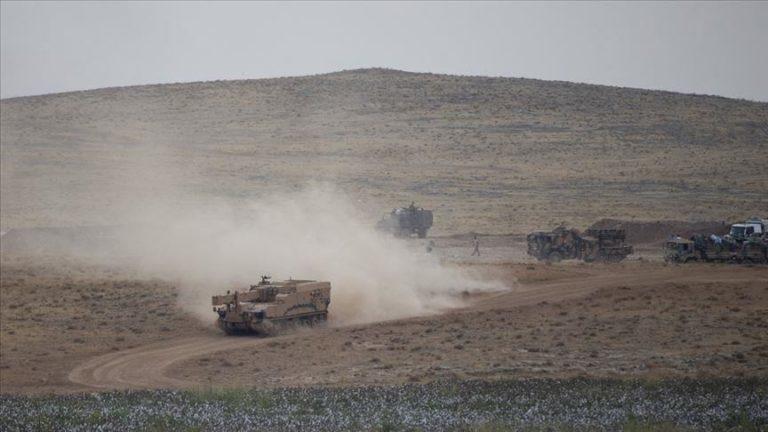
‘Operation Peace Spring’: Turkey’s military operation inside Syria launched on October 9, 2019.
Shall we sit upon the ground and tell there is no longer daylight between Russia and Turkey? We are almost there. The Turkish incursion into Syria on Wednesday, October 9, is the tipping point. Turkey and Russia are closely coordinating. Consider the following.
The White House announced on Sunday that it was withdrawing from northeastern Syria in advance of Turkey’s military operations across the border. President Donald Trump apparently made the decision after a phone call with Turkish president Recep Erdogan on Sunday. The whiplash around Trump’s decision rattled US’s allies.
There has been widespread criticism in the Beltway that the US is jeopardising its Kurdish partners on the ground and unleashing unpredictable consequences for Syria — and, above all, badly damaged US credibility. Some forewarn that the Syrian conflict is intensifying just when the embers were cooling.
Some of this criticism may be true. Because, Turkey is vengeful. It has long wanted to move across the border into northern Syria, where it sees the Syrian Kurdish forces or YPG as joined at the hips with the Kurdistan Workers’ Party or PKK, separatists that Turkey considers a terrorist group that has waged an insurgency for decades, and has long put Turkey on edge.
But there is the “X” factor: Is Turkey going into this enterprise alone? Much hinges on the answer, which in turn relates to the alchemy of the overall Turkish-Russian strategic understanding that goes far beyond Syria.
In a little-noticed development last Tuesday — precisely, during the 36-hour interregnum between Trump’s announcement of troop withdrawal from Syria and the Turkish incursion into northern Syria — the Russian Finance Ministry announced that Moscow and Ankara have inked an agreement on using Russian rubles and Turkish lira in mutual payments and settlements. The RT reported that the agreement aims for “further expansion and strengthening of interbank interaction, as well as ensuring uninterrupted payments between business entities of the two countries.”
Plainly put, Moscow and Ankara have created a firewall against possible US and/or Western sanctions against Turkey in future.
The RT explained that the new Turkish-Russian payment system will connect Turkish banks and companies to the Russian analogue of the SWIFT payment network, “while enhancing the infrastructure in Turkey that would allow using Russian MIR payment cards, designed by Moscow as an alternative to MasterCard and VISA.”
The report underlined, “The new agreement is part of the two nations’ push to cut their reliance on the US dollar… Erdogan announced last year (sic) plans to end the US dollar monopoly via a new policy that is aimed at non-dollar trading with the country’s international partners.”
The agreement with Turkey becomes the newest template in President Putin’s ambitious project to get rid of the US dollar in Russia’s foreign trade. (Trade turnover between Turkey and Russia is substantial; it grew by 16 percent last year, reaching $25.5 billion.) Clearly, the Turkish-Russian payment system is a major foreign policy move by the two countries.
The following day, on Wednesday, the Turkish military incursion into Syria began. Significantly, just prior to the operation, Turkish President Recep Erdogan spoke to Putin on phone.
The Kremlin readout said, “In the light of Turkey’s announced plans to carry out a military operation in the northeast of Syria, Vladimir Putin urged our Turkish partners to carefully weigh the situation so as not to damage our joint efforts to resolve the Syrian crisis.” It added that the two presidents stressed “the importance of guaranteeing the unity and territorial integrity of Syria and respect for its sovereignty.”
The Russian reaction to the Turkish military operation is nuanced. On Thursday, Russian Foreign Minister Sergey Lavrov told reporters while on a visit to Turkmenistan, “Since the start of Syrian crisis, we emphasise that we understand Turkey’s concerns over its border security.”
Lavrov suggested that these concerns could be eased within the framework of the Adana agreement signed between Turkey and Syria in 1998 (which stipulated direct security coordination between Ankara and Damascus.)
Lavrov put the blame for the Turkish incursion squarely on the US policies. He recalled that Russia had warned the US against playing the “Kurdish card” and making Kurdish and Arab tribes to come face to face.
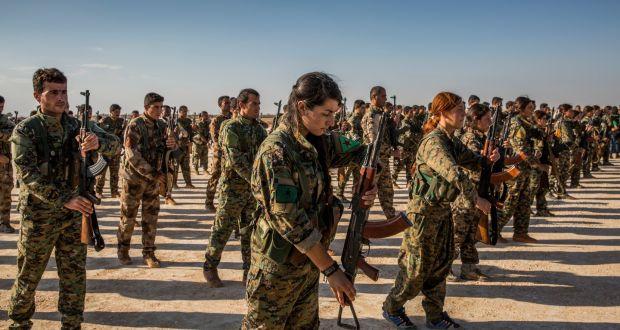
YPG fighters whom the US regards as its most reliable partner in Northern Syria, a policy some call wilful ignorance.
Importantly, Lavrov added, “Russian and Turkish military officials are in contact over the operation. Now, we will try to establish a dialogue between Damascus and Ankara. We think this is in the interest of both sides.”
On the same day, Thursday, when the Western nations wanted the UN Security Council to condemn Turkey, Russia stonewalled the move, arguing it wanted the “illegal military presence” of other nations (read US, France, Germany, etc.) also to be addressed. Russia urged “direct dialogue” between Ankara and Damascus.
Meanwhile, the Turkish incursion is showing some interesting features. How far this is due to Russian influence is unclear, but it turns out that the incursion falls well short of a war.
Principally, the operation is focused on Arab-majority regions of northern Syria, where there is historical antipathy toward Kurds and where YPG is in no position to challenge the Turkish military. The Turkish objective appears to be to create a swathe of territory, which is solidly Arab where Syrian refugees can be rehabilitated. (There is growing resentment among Turks over the open-ended presence of 4 million Syrian refugees.)
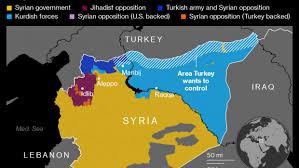
Russia’s mild reaction takes into account Turkish assurances that the operation is not targeting traditional Kurdish homelands and there isn’t going to be an epic war with the Kurds. However, things can go wrong in a military operation. There are already conflicting reports of Turkish casualties.
Indeed, the fate of the ISIS fighters under detention in Kurdish-controlled areas is a hugely consequential issue for the international community. Trump puts the onus on Turkey. Russia is worried too. Putin said on Friday that Turkey may not be able to contain ISIS militants active in northern Syria.
“Kurdish units used to keep an eye on those areas but now that Turkish troops are entering the region, they [militants] may just flee away. I’m not sure the Turkish army will be able to take control of the situation, and quickly,” Putin noted. Russia and the US need to coordinate on the ground to ensure ISIS do not rear their head again. Trump favours it.
However, the ultimate aim behind the Kremlin’s acceptance of the Turkish offensive is that Erdogan will acquiesce to Moscow’s plans for Syria’s future whereby President Bashar al-Assad can reassert control across the whole of Syria. Moscow will not countenance Turkey’s cross-border operation morphing as a long-term breach of Syrian territorial sovereignty. Suffice to say, Russia is holding the Turkish hand with the expectation that the synergy will help shape postwar Syria.
On a parallel track, Russia is hoping to find an answer to Turkey’s Kurdish concerns by encouraging the Kurds to start a dialogue with Damascus to ensure security on the Turkish-Syrian border. The Turkish incursion is, therefore, helpful in some ways for Kremlin by giving leverage to pressure Kurds to fold themselves back into Syria.
In this intricate balancing of contradictory interests, the bottom line is that Russia keeps nurturing the warming ties with Turkey. The Kremlin’s big trophy is that a major NATO country is stepping out of the US orbit. The European pressure will mount on Turkey in the coming days to be ‘with us, or you’re against us’. France is taking the lead.
The agreement on the new payments system on Tuesday underscores that both Moscow and Ankara are mindful of a possible rupture in Turkey’s relations with the West. The statement on Thursday by the EU members of the UN Security Council has ominous overtones.
Get the latest reports & analysis with people's perspective on Protests, movements & deep analytical videos, discussions of the current affairs in your Telegram app. Subscribe to NewsClick's Telegram channel & get Real-Time updates on stories, as they get published on our website.











